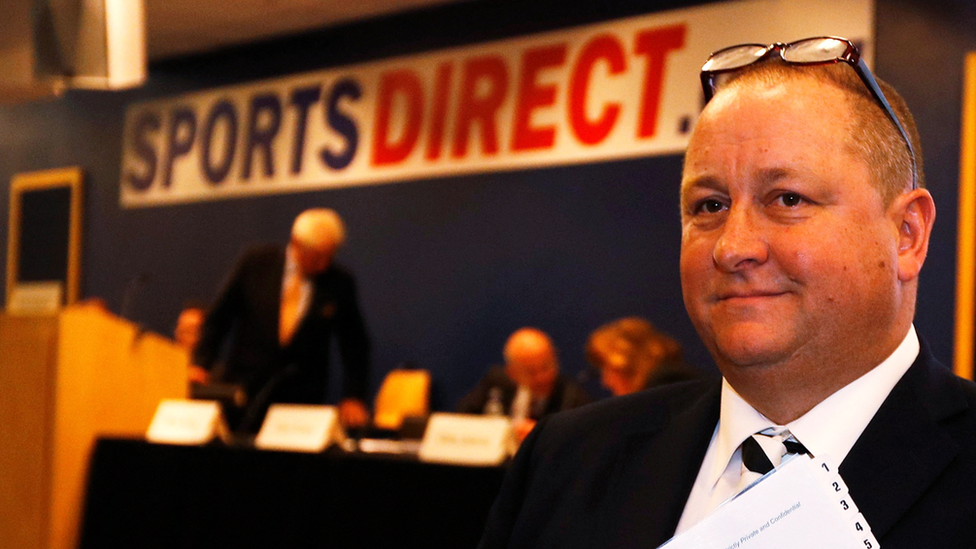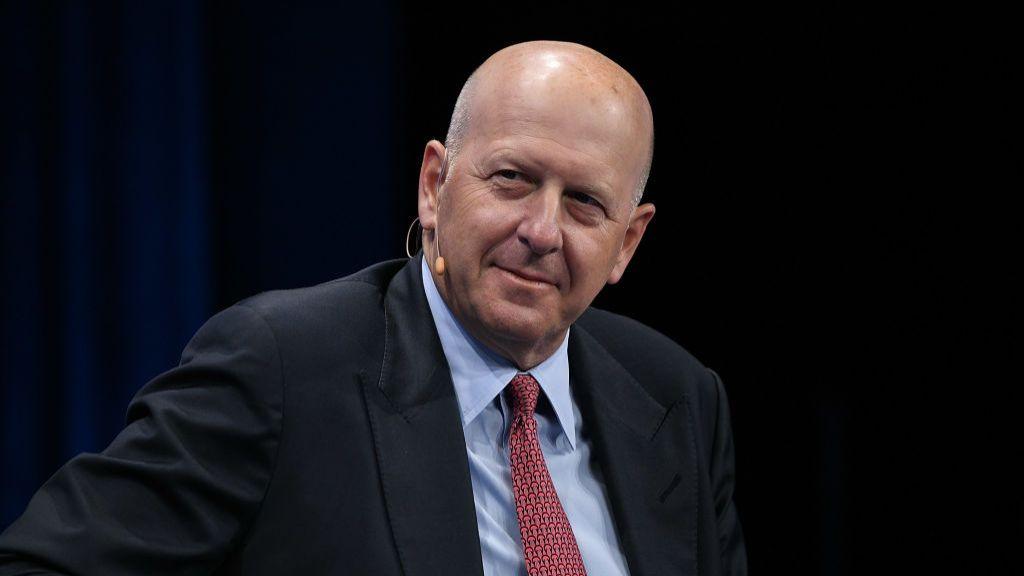Sports Direct owner Frasers Group scraps home working
- Published

Frasers Group is owned by Sports Direct founder Mike Ashley
Office staff at Mike Ashley's Frasers Group will no longer work from home on Fridays after a memo said some were "not treating Friday as a working day".
The memo from the retail group's chief operating officer, David Al-Mudallal, seen by The Sun, said there were "too many examples" of people not being contactable when they needed to be.
So-called "Frasers Fridays" was started as a flexible working policy in 2020.
A spokeswoman said the firm believed people worked better in an office.
The spokeswoman told the BBC "collaboration" was "key to how we deliver value".
"We believe that we are all at our best when we work together in an office environment," she added.
Mr Al-Mudallal was reported to have told staff that some of their social media profiles were "demonstrating that they're not treating Friday as a working day".
He added that Fridays had become an "unproductive day of the week".
Frasers Group, which includes brands such as House of Fraser and Evans Cycles, is owned by Sports Direct founder and retail billionaire Mike Ashley.
Mr Ashley handed over the day-to-day running of his retail empire to his future son-in law, Michael Murray, in May.
It is understood bosses at Frasers Group had been measuring the productivity of staff on Fridays since the start of the flexible working scheme and decided to pull people back into the office.
Flexible and hybrid working patterns - where some people get to work some days at home and others in offices - have become more common since coronavirus pandemic restrictions were lifted.
However, companies differ in their opinion of new working practices. In April this year, Airbnb decided to let its employees work from anywhere for as long as they like, but last year the boss of Goldman Sachs rejected remote working as a "new normal" and labelled it an "aberration" instead.
Working from home for part of the week has become the norm for some employees, a survey of managers has suggested.
The Chartered Institute of Management found in February that more than 80% of firms had adopted hybrid working - most since the pandemic.
The institute said firms should embrace hybrid work as "best practice".
In April, Ben Willmott, head of public policy at the Chartered Institute of Personnel and Development, said hybrid working let firms widen the net when recruiting to try to tackle skills shortages, and it can improve productivity and work/life balance.
However, he added that there were also potential downsides to hybrid working, including the possibility of "a two-tier workforce", with a split between those who have lots of flexibility and those who cannot work from home.
The UK government said in September 2021 that would like to give workers the right to request flexible working when they start new jobs from day one, and is reviewing more than 1,600 responses to a consultation that closed in December last year.
Related topics
- Published25 February 2021

- Published5 August 2021

- Published29 April 2022
